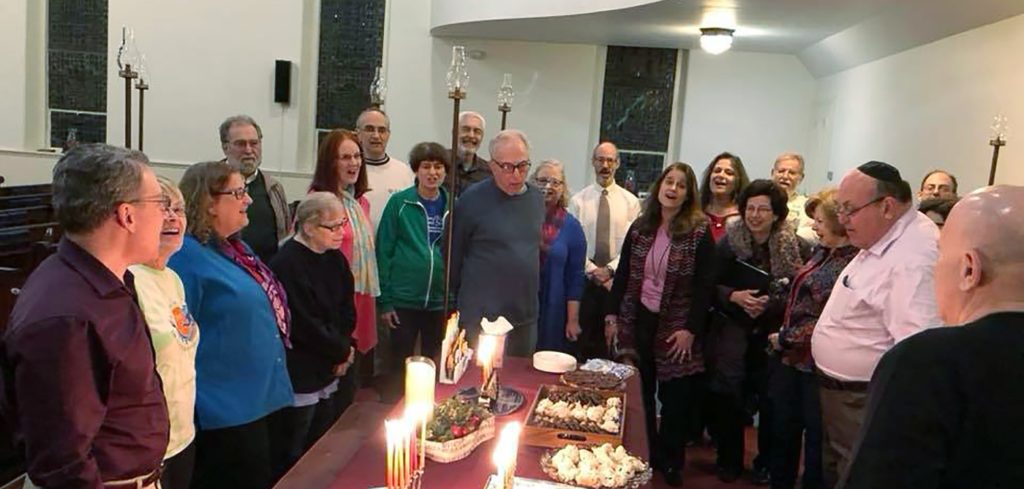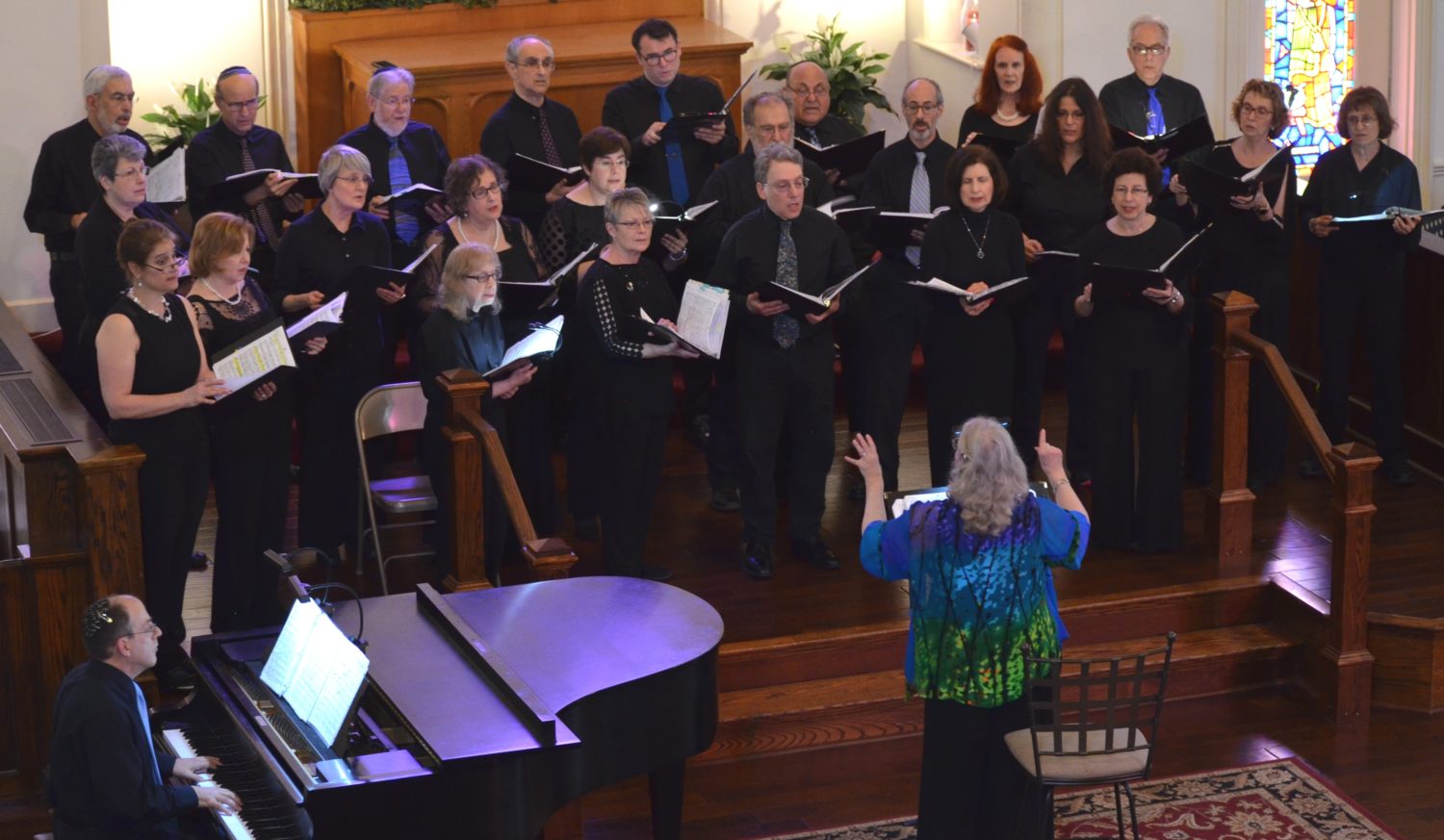
Sharim v’Sharot is looking for singers to complement our signature sound and be a part of our choir. Auditions for the 2024-2025 season are being held August through September 2024 by appointment. Please read all of the information below. If you have any questions, or if you would like to schedule an audition, please email auditions@sharimvsharot.org.
Rehearsals are on Tuesday evenings in Lawrenceville, NJ from September 3rd (excluding Jewish holidays), and will run until the week before our Spring 2025 concert. Our members come from Central New Jersey and the Delaware Valley. We sing in four parts (soprano, alto, tenor, bass) or more as the music requires. If you also have instrumental talent, please let us know!

What to expect at your audition
You will meet with our conductor, Dr. Elayne Robinson Grossman. She’ll want to hear you sing without accompaniment. Songs can be taken from Broadway, opera, folk, Israeli or liturgical repertoire.
- Please prepare two songs that you love to sing, one fast and one slow (not a niggun or a vocal exercise without words). The lyrics can be in any language.
- Be prepared to sing several scales so that Elayne can gauge your current singing range and determine your voice part.
- Expect to repeat patterns of melody and rhythm. There is really no way to prepare for the echo pattern portions of the audition. You will be asked to repeat melodic patterns played on the piano and rhythmic patterns that will be tapped or clapped.
- Be prepared to do some sight-reading. While sight-reading is not necessary for acceptance into the choir, familiarity with the notation and an ability to negotiate a score and to learn quickly are appreciated and expected.
We look forward to hearing from you!
Sharim v’Sharot is deeply committed to the pursuit of equity, diversity, inclusion, and access. We especially encourage auditions and participation by qualified singers of underrepresented minorities, and other individuals who belong to groups that have been historically underrepresented or marginalized within Jewish Arts Communities.

